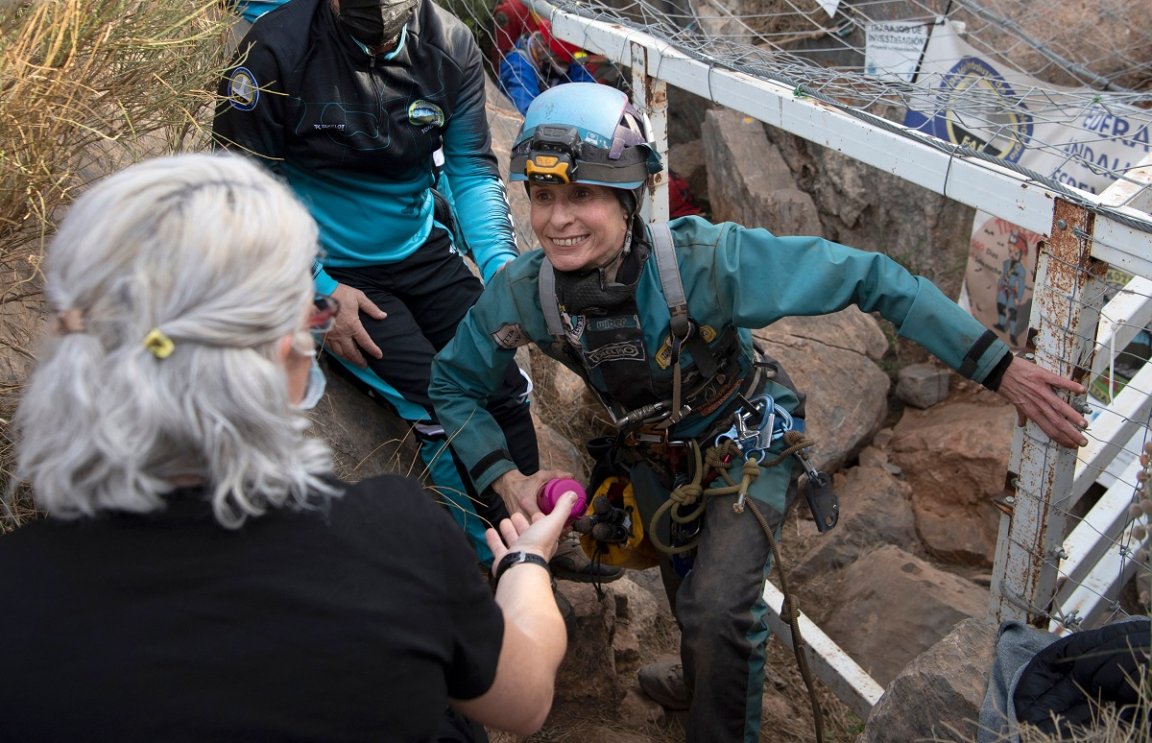
Under a Rock
Accounts of being trapped in caves tend to be tales of horror and despair — but for one Spanish woman, her experience sounds more akin to some long term R & R.
As part of an ambitious scientific experiment, Beatriz Flamini, an experienced mountaineer and adventurer, spent a whopping 500 days isolated in a cave deep underground with almost no human contact and without a trace of sunlight. Flamini went in 48-years-old, and exited at 50.
When she finally emerged last week, one of the first things Flamini asked was ‘who’s buying the beer?’ and promptly summed up her experience as “excellent, unbeatable,” as quoted by The Associated Press.
“In fact, I didn’t want to come out,” she later added. When asked how she kept sane, she replied that “I got on very well with myself.”
Cave Days
Flamini was greeted by a small throng of supporters, doctors, scientists, and reporters, whom she told that she was surprised her time was up already.
“I was sleeping — or at least dozing — when they came down to get me,” Flamini said, as quoted by The Guardian.
“I thought something had happened,” she added. “I said: ‘Already? No way.’ I hadn’t finished my book.”
And books she had aplenty. Flamini says she read around 60 books during her stint underground. Besides reading, she also killed the time by writing, drawing, knitting little hats, and documenting her experience with two GoPros.
Though Flamini was largely left alone during her entire subterranean stint, she was lightly monitored by a team of scientists, who left her food — without making contact — and collected her waste.
Flamini was dead set on keeping communications to an absolute minimum, and insisted that the scientists shouldn’t even tell her about the death of a loved one.
Time Sink
By banishing her underground, the scientists hoped to better understand how someone would deal with such a lengthy solo spelunking. And what better way of observing that than playing out the real thing?
As such, the project is dubbed “Timecave,” and based on Flamini’s experience, it’s an apt moniker.
According to NPR, Flamini had estimated she was down there for only around 170 days, and lost track of the time by about two months in. That’s quite the discrepancy between her perception and the actual time elapsed.
Out of the cave she may be, but out of the woods Flamini is not. Doctors and scientists will want to study the effects of the experience on her health, and NPR notes that multiple universities have already expressed interest in studying the effects on her Circadian rhythm and her perception of the passage of time.
More on isolation experiments: NASA’s Simulated Mars Habitat Includes Such Necessities As a PS4 and Settlers of Catan